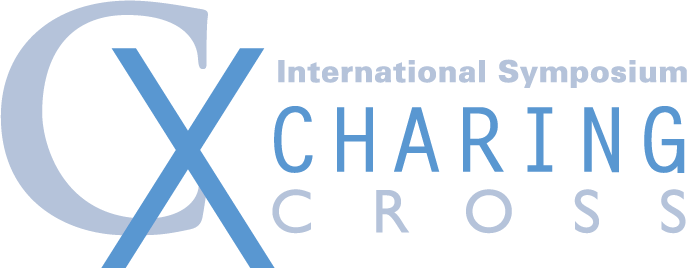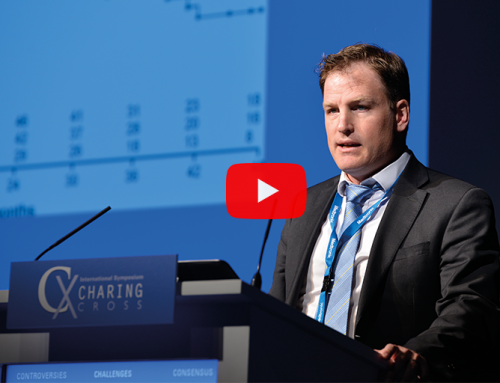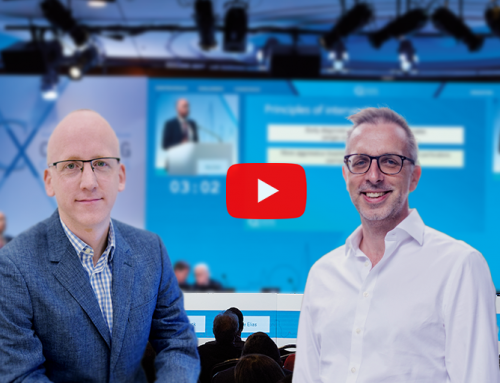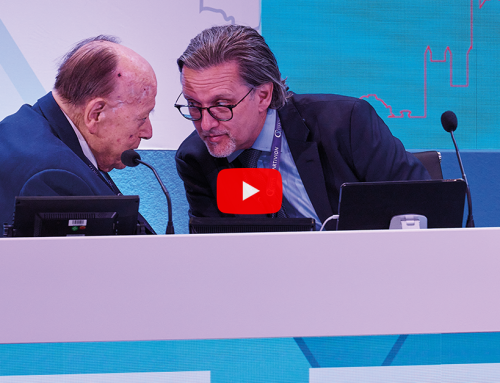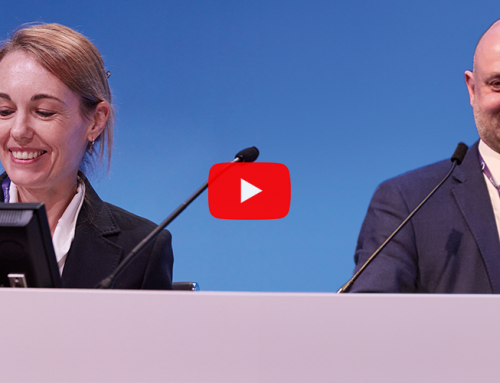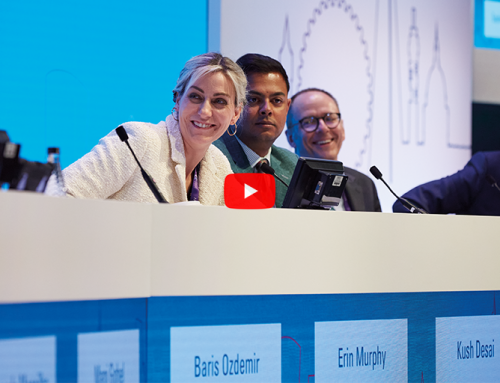This year, the CX Venous Challenges Programme will explore the use of various technologies and techniques for the treatment of superficial and deep venous disease, with emphasis on the latest evidence of when and in which patients they should be used. Ian Franklin (London, UK), member of the CX Programme Organising Board, notes: “This year we are trying to focus not only on the techniques but also on when to use and when not to use them. We also want to encourage more discussion about which patients are the most appropriate for which technology and technique.”

Ian Franklin, Alun Davies, Mark Whiteley and Stephen Black
The topics for discussion will include acute deep vein thrombosis and deep vein stenting challenges, followed by proximal deep venous obstruction and pelvic vein reflux challenges. A new session on lymphoedema challenges will precede discussions on superficial venous challenges.
For the first time, the CX Venous Challenges Main Programme will take place on the first day of the Symposium (26 April 2016), in the new Lower Main Auditorium. The Venous Main Programme will be complemented by the CX Venous Workshop, which will run on days two and three (27‒28 April 2016). Franklin comments: “This new structure runs very nicely for delegates who will have the opportunity to continue the discussion of the subjects and techniques learned on the first day on the second and third days of the Symposium in the CX Venous Workshop, in small groups and face to face, with world-leading experts who will provide practical sessions on superficial and deep venous interventions.”
The CX Venous Abstract presentations will close the comprehensive Venous Programme on day four (29 April 2016).
CX Venous Challenges highlights
Speaking about the highlights of this year’s Venous Main Programme, Franklin says that delegates will learn a more integrated approach to venous disease treatment. He notes: “There used to be a split between superficial venous issues and deep venous issues, without the understanding that there is a huge overlap. There are patients with symptoms, which we have previously treated for superficial vein issues and in fact they had an underlying disease, which we never appreciated. As imaging and stenting techniques improve we now have potential to get much better results in these patients.”
Stephen Black (London, UK), also a member of the CX Programme Organising Board, adds: “This year we will see data to be presented on the first investigational device exemption studies conducted for the dedicated venous stents as well as a number of new developments in clot lysis and mechanical thrombectomy. I believe, however, that some of the most interesting areas are developments in aging clot so we can better select patients for lysis. In addition, there are a number of areas of considerable debate principally around the concept of treatment of haemorrhoids with embolisation, which need careful discussion.”
Mark Whiteley (London, UK), member of the CX Programme Organising Board, considers that one of the most interesting topics for discussion in the Venous Main Programme is the investigation and treatment of pelvic veins and the associated deep veins. He says: “Now, proven to be associated with leg varicose veins in one in seven women, pelvic venous reflux should interest anyone practising varicose vein surgery. However, pushing the envelope further, are Previn Diwakar (London, UK) presenting pelvic vein reflux in males and David Beckett (Poole, UK), suggesting haemorrhoids are part of the pelvic venous reflux picture.”
Franklin, Black and Whiteley agree that the new section on lymphoedema challenges is a great addition to the Venous Programme in 2016. Alun Davies (London, UK), member of the CX Programme Organising Board, comments: “Lymphoedema is one of the Cinderella subjects of vascular disease. A large number of patients suffer from this as a primary condition or secondary to other treatments. This area needs improvement in defining the disease process and evaluation of new technologies to deal with the symptoms suffered by patients.”
Franklin adds: “In the past, lymphoedema was probably neglected because people thought that there was not much it could be done about it. Now there are some quite exciting new developments, which may change that perception. Some of them are variations of existing treatment and some are new techniques. We will explore those developments at Charing Cross.”
The CX Venous Abstract Presentations are also an important complement to the Venous Programme. Black comments: “The abstracts complement the Main Programme and should allow for stimulating discussion of a number of controversial areas.”
Franklin adds that it “gives an opportunity for new work to be presented by people who may not be well known, giving them a chance to bring original work to the Charing Cross meeting. The best ideas could even be brought back in the upcoming CX symposia.”
In this video interview Ian Franklin speaks about the CX Venous sessions in 2015.
The CX Venous Challenges Day will take place at the Charing Cross Symposium on Tuesday 26 April – Lower Main Auditorium, Olympia Grand, London, UK
Click here to see the CX Interactive Main Programme – Venous Challenges
Click here to see the CX Venous Workshop
Click here to see the CX Venous Abstract Presentations
Click here to register

